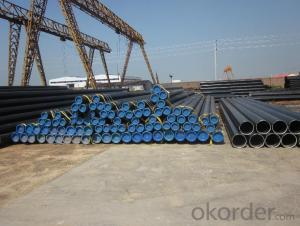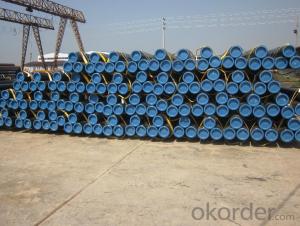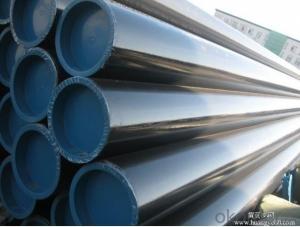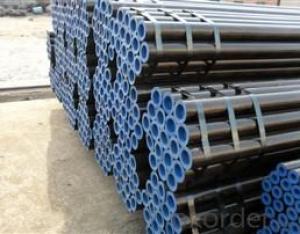CARBON SEAMLESS STEEL PIPES FROM CNBM WITH BEST QUALITY
- Loading Port:
- Tianjin
- Payment Terms:
- TT OR LC
- Min Order Qty:
- 50 m.t.
- Supply Capability:
- 500 m.t./month
OKorder Service Pledge
OKorder Financial Service
You Might Also Like
1、Structure of Steel Pipe Q345 Descrption:
Having vast industrial knowledge of domain, we are offering a quality approved array of Stainless Steel Round Pipe. The Stainless Steel Round Pipe we offer is widely demanded amongst the clients for its sturdiness and reliability. These products are tested for their quality before being introduced in the market.
2、Main Features of the Steel Pipe Q345:
·Highly demanded
·Durable
·Reliable
·resist corrosion
·reasonable price
3、The Steel Pipe Q345 Specification:
Standard JIS, DIN, ASTM
JIS G3445-2006, JIS G3444-2006, JIS G3446-2004, DIN EN 10216-1-2004, DIN EN 10217-1-2005, DIN EN 10305, ASTM A106-2006, ASTM A53-2007, ASTM A789-2001, ASTM A1020-2002, ASTM A179-1990, ASTM A199Grade Cr-Mo alloy, Mo, ST35-ST52, Q195-Q345, CrNi alloy
15CrMo, 10CrMo910, 30CrMo, 15Mo3, 16Mo, St37, St52, St42, St45, Q235, Q345, Q195, Q215, Cr17Ni8, 1Cr13Mn9Ni1NThickness 2 - 50 mm Section Shape Round Outer Diameter 10 - 900 mm Secondary Or Not Non-secondary Application Structure Pipe Technique EFW Certification API Surface Treatment Paint Special Pipe API Pipe Alloy Or Not Non-alloy
Specifications
1.W.T from 2mm to 70mm
2.OD from 10 to 1200mm
3.product by our own factory
4.on time dilivery
4,Steel Pipe Q345 Images:
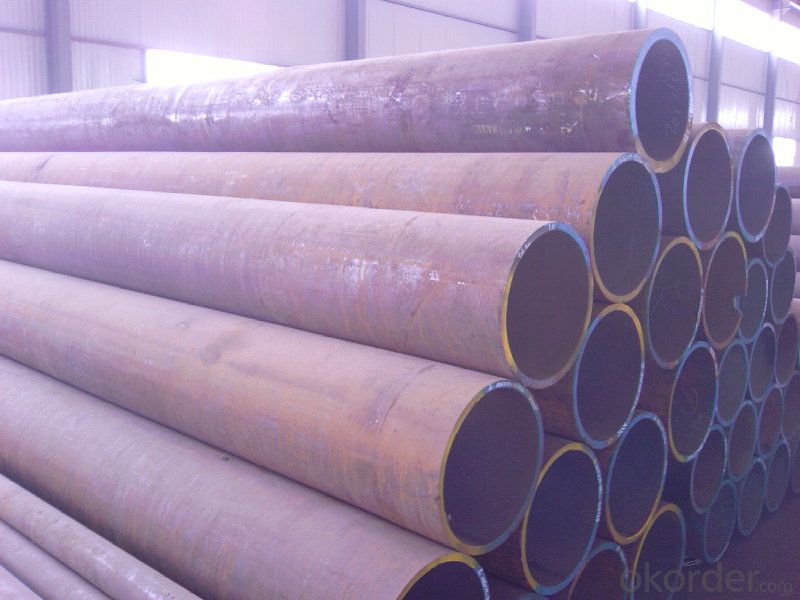
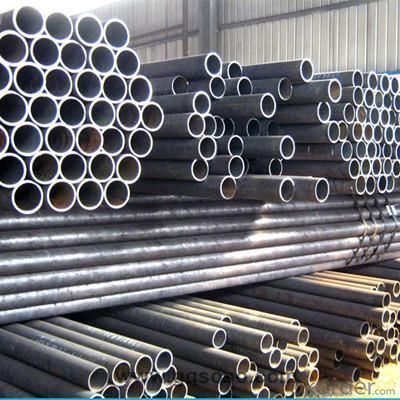
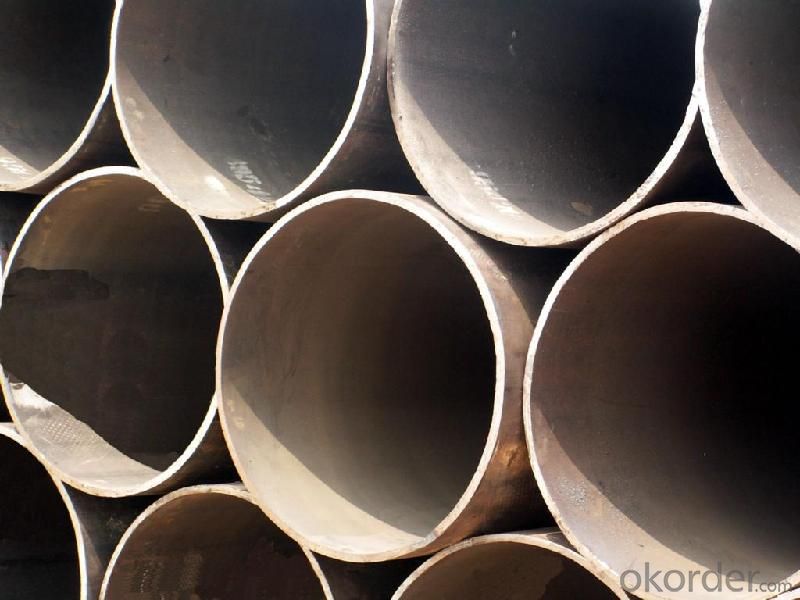
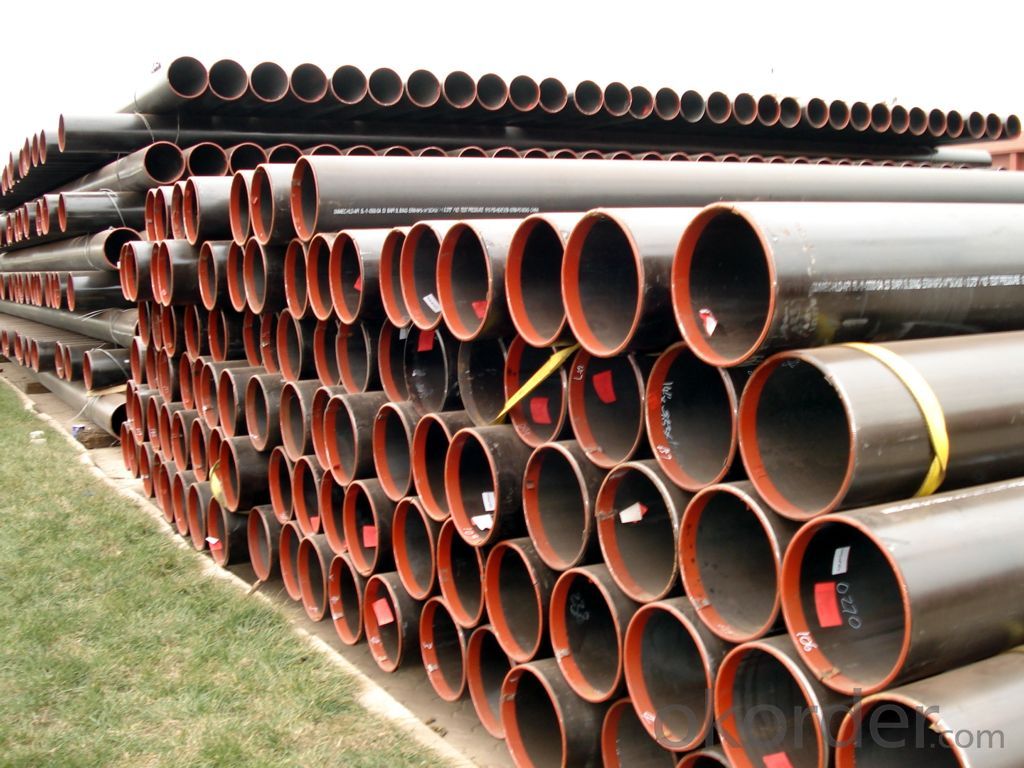
5、FAQ of Square Tube:
①How is the quality of your products?
Our products are manufactured strictly according to national and internaional standard, and we take a test
on every pipe before delivered out. If you want see our quality certifications and all kinds of testing report, please just ask us for it.
Guaranteed: If products’ quality don’t accord to discription as we give or the promise before you place order, we promise 100% refund.
②How about price?
Yes, we are factory and be able to give you lowest price below market one, and we have a policy that “ for saving time and absolutely honest business attitude, we quote as lowest as possible for any customer, and discount can be given according to quantity”,if you like bargain and factory price is not low enough as you think, just don’t waste your time.Please trust the quotation we would give you, it is professional one.
③Why should you chose us?
Chose happens because of quality, then price, We can give you both.Additionally, we can also offer professional products inquiry, products knowledge train(for agents), smooth goods delivery, exellent customer solution proposals.Our service formula: good quality+good price+good service=customer’s trust
SGS test is available, customer inspection before shipping is welcome, third party inspection is no problem.
Any question, pls feel free to contact us !
- Q:How do you determine the wall thickness of a steel pipe?
- To determine the wall thickness of a steel pipe, there are a few methods you can use. The most common and accurate method is to measure it using a caliper or micrometer. First, ensure that the pipe is clean and free from any debris or rust. Then, take the caliper or micrometer and gently place it around the circumference of the pipe, making sure it is perpendicular to the surface. Carefully close the jaws of the measuring tool until they are snug against the pipe, but not so tight that they deform the shape. Once the jaws are closed, read the measurement displayed on the tool. This measurement represents the distance between the inner and outer diameter of the pipe, which is equal to the wall thickness. Alternatively, if you don't have access to a caliper or micrometer, you can use a pipe wall thickness gauge. These gauges have a set of pins or rollers that can be inserted into the pipe, providing you with an accurate measurement. Simply insert the pins into the pipe, ensuring they are properly aligned with the wall, and check the reading displayed on the gauge. It's important to note that when measuring the wall thickness of a steel pipe, you should take multiple readings at different points along the pipe to account for any variations. This will provide you with a more accurate average measurement.
- Q:Can steel pipes be used for drinking water supply?
- Yes, steel pipes can be used for drinking water supply. However, it is important to ensure that the pipes are properly coated or lined to prevent corrosion and any potential contamination of the water. Regular maintenance and monitoring are also necessary to ensure the pipes remain in good condition for safe drinking water supply.
- Q:Can steel pipes be used for bridge piling?
- Yes, steel pipes can be used for bridge piling. Steel pipes are commonly used for bridge piling due to their strength, durability, and resistance to corrosion. They provide a strong foundation for bridges, ensuring stability and longevity.
- Q:Can steel pipes be used for underground oil pipelines?
- Indeed, underground oil pipelines can utilize steel pipes. The construction of underground oil pipelines heavily relies on steel pipes owing to their robustness, longevity, and resistance to corrosion. They possess the capability to endure the immense pressure and weight exerted by the oil being transported, along with external forces like soil displacement or seismic events. Moreover, steel pipes can be fortified with coatings or linings such as epoxy or polyethylene, enhancing their resistance to corrosion and extending their lifespan. In conclusion, steel pipes emerge as a dependable and extensively employed option for underground oil pipelines.
- Q:Can steel pipes be used for transporting drinking water?
- Yes, steel pipes can be used for transporting drinking water. Steel pipes are commonly used in water distribution systems and have been used for many years. They are known for their durability, strength, and resistance to corrosion. However, it is important to ensure that the steel pipes used for transporting drinking water are properly coated or lined to prevent any potential contamination from the metal. Additionally, regular inspections and maintenance should be carried out to ensure the integrity of the pipes and to prevent any leaks or breaks that could compromise the quality of the water.
- Q:How do steel pipes withstand pressure?
- Steel pipes withstand pressure due to their inherent strength and resilience. The high tensile strength and durability of steel allow it to withstand the internal pressure exerted by fluids or gases flowing through the pipes. Additionally, the thick walls and cylindrical shape of the steel pipes distribute the pressure evenly, preventing any deformation or rupture. The seamless construction of steel pipes further enhances their ability to withstand pressure, making them a reliable choice for various applications in industries such as oil and gas, plumbing, and construction.
- Q:Are steel pipes resistant to earthquakes?
- Steel pipes are generally more resistant to earthquakes compared to other materials due to their strength and flexibility. However, their ability to withstand seismic events depends on various factors such as the design, installation, and support systems in place. Overall, steel pipes can provide a higher level of earthquake resistance, but proper engineering and construction practices are crucial to ensure their effectiveness.
- Q:How are steel pipes classified according to their wall thickness?
- Steel pipes are classified according to their wall thickness into three categories: schedule, standard, and extra strong.
- Q:What is the difference between steel pipe and PVC conduit?
- Steel pipe and PVC conduit are both used for different purposes and have different characteristics. One of the main differences between steel pipe and PVC conduit is their material composition. Steel pipe is made of a sturdy and durable material, typically carbon steel or stainless steel. This makes it strong and resistant to impact, making it suitable for heavy-duty applications such as plumbing or structural support. On the other hand, PVC conduit is made of polyvinyl chloride, a type of plastic. PVC is lightweight, flexible, and easy to work with, making it ideal for electrical applications such as protecting and routing electrical wires. Another difference is their resistance to corrosion. Steel pipe is more resistant to corrosion than PVC conduit, especially when coated with protective layers such as zinc or epoxy. This makes steel pipe suitable for outdoor applications, underground installations, or environments with high moisture or corrosive elements. PVC conduit, while generally resistant to moisture and chemicals, may deteriorate over time when exposed to sunlight and can be damaged by certain chemicals. Cost is another factor to consider. Steel pipe is generally more expensive than PVC conduit due to its material and manufacturing process. However, steel pipe's durability and long lifespan make it a cost-effective choice in the long run, especially for applications that require high strength and longevity. PVC conduit, on the other hand, is relatively inexpensive and readily available, making it a more affordable option for many electrical projects. Lastly, installation methods differ between the two. Steel pipe is typically joined together using threaded connections or welded joints, requiring specialized tools and skills. PVC conduit, on the other hand, can be easily cut, assembled, and connected using PVC cement or fittings. This makes PVC conduit a more DIY-friendly option for electrical installations. In summary, the main differences between steel pipe and PVC conduit lie in their material composition, resistance to corrosion, cost, and installation methods. Steel pipe is strong, durable, and corrosion-resistant, making it suitable for heavy-duty applications. PVC conduit, on the other hand, is lightweight, flexible, and affordable, making it ideal for electrical projects.
- Q:There are multiple welded galvanized steel pipe outer diameter 108mm wall thickness 4mm length of 6 meters
- Galvanized steel pipe is divided into cold galvanized steel pipe, hot galvanized steel pipe, cold galvanized steel pipe has been banned, and the latter is also advocated by the state for the moment, can be used. In 60s and 70s, developed countries began to develop new types of pipes, and galvanized pipes were banned. China's Ministry of construction and other four ministries also issued a civilization, indeed from two, 000 years since the galvanized pipe as a water supply pipe, the New District cold water pipe has rarely used galvanized pipe, and some of the hot water pipe is galvanized pipe. Hot dip galvanized steel pipe is widely used in fire, power and highway.
1. Manufacturer Overview |
|
|---|---|
| Location | |
| Year Established | |
| Annual Output Value | |
| Main Markets | |
| Company Certifications | |
2. Manufacturer Certificates |
|
|---|---|
| a) Certification Name | |
| Range | |
| Reference | |
| Validity Period | |
3. Manufacturer Capability |
|
|---|---|
| a)Trade Capacity | |
| Nearest Port | |
| Export Percentage | |
| No.of Employees in Trade Department | |
| Language Spoken: | |
| b)Factory Information | |
| Factory Size: | |
| No. of Production Lines | |
| Contract Manufacturing | |
| Product Price Range | |
Send your message to us
CARBON SEAMLESS STEEL PIPES FROM CNBM WITH BEST QUALITY
- Loading Port:
- Tianjin
- Payment Terms:
- TT OR LC
- Min Order Qty:
- 50 m.t.
- Supply Capability:
- 500 m.t./month
OKorder Service Pledge
OKorder Financial Service
Similar products
New products
Hot products
Related keywords
